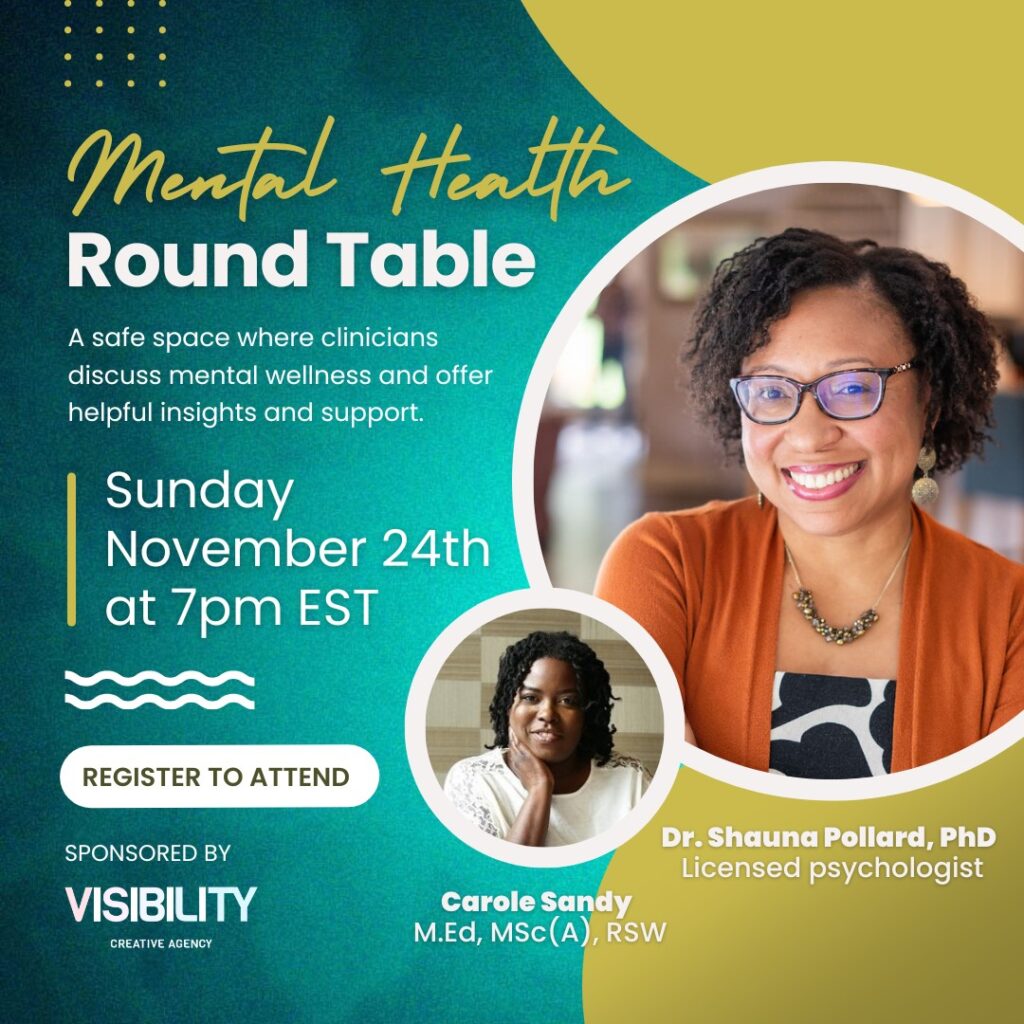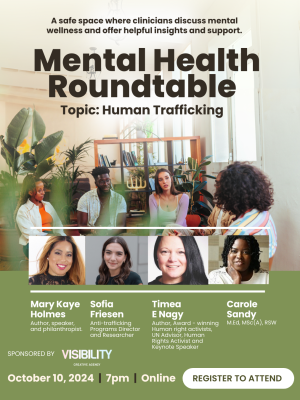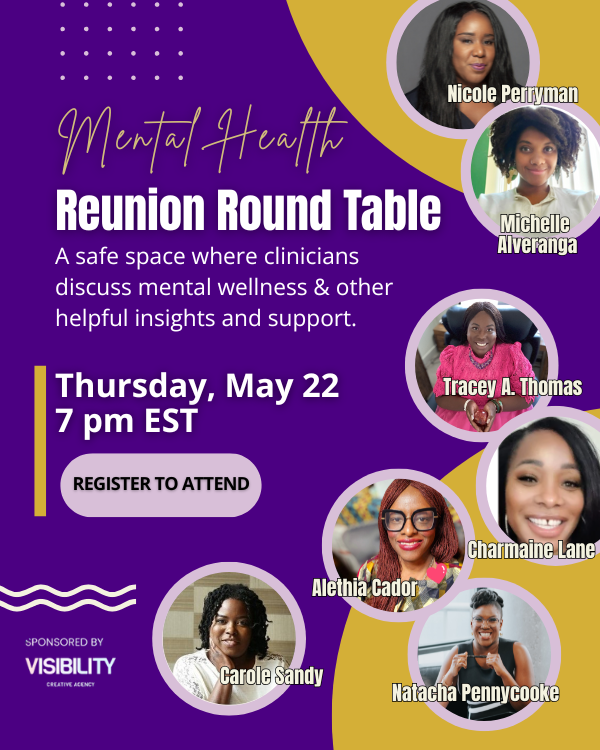Join our Newsletter below to be the first to know
what we have in store for you next month!

May 2025
5th Anniversary Special: Reunion Round Table Episode
Celebrating 5 years of Impact!
Five years ago, we sat down with seven visionary leaders to ignite conversations about mental health, equity and community healing. Now, they’re reuniting to share their journeys, triumphs and lesssons since 2020.
Why attend?
- Exclusive Insights: Hear how these leaders navigated challenges, from the pandemic to systemic barriers.
- Live Q&A: Ask your burning questions about mental health, advocacy, and sustaining impact.
- Celebrate Progress: Witness how their work has transformed lives and communities.

November 2024

Dr. Pollard shed light on the complexity of ADHD, explaining that it’s not just about inattentiveness but involves a nuanced “variable attention stimulus trait” which affects how attention is regulated across different contexts. She emphasized the challenges of emotional regulation, as many with ADHD also experience conditions like anxiety and depression, highlighting the need for effective management strategies.
Navigating social dynamics can also be particularly challenging for those with ADHD. Issues such as impulsivity and a tendency to overshare can complicate relationships, but Cognitive Behavioral Therapy (CBT) offers tools to improve these interactions. Dr. Pollard stressed the importance of trauma-informed and culturally competent care, especially for BIPOC individuals, addressing not only ADHD symptoms but also systemic and cultural barriers that affect treatment and diagnosis.
Treatment for ADHD should be highly personalized, incorporating both medication for focus and therapies like Dialectical Behavior Therapy (DBT) for emotional regulation. While some natural remedies lack robust scientific backing, resources like executive functioning coaching were recommended to aid those managing ADHD.
Dr. Pollard’s consultation groups and workshops offer ongoing support and a platform for sharing strategies and experiences, emphasizing the importance of community in managing ADHD. Understanding and tailored interventions can empower individuals to thrive by focusing on their strengths and receiving compassionate support.

October 2024

Trafficking Is More Nuanced Than We Think
One of the key takeaways from the discussion was that human trafficking is often misunderstood. While many think of it as involving strangers or kidnappings, Sophia shared that most trafficking cases involve exploitation by someone the victim knows. This makes it difficult for victims to even recognize they are being trafficked. She emphasized the need for education and awareness to better equip communities in identifying and preventing trafficking.
Survivor Stories Shed Light on Hidden Realities
Mary Kaye’s story was particularly powerful. Trafficked at the age of 15, she didn’t realize until years later, while in law school, that what she had endured was human trafficking. Her experience highlighted the fact that trafficking doesn’t always involve movement across borders—it often occurs within a victim’s own community, through manipulation, coercion, and emotional abuse. Mary Kaye stressed that traffickers frequently target vulnerable individuals, such as those seeking love, acceptance, or financial stability.
The Path Forward
Both speakers reinforced the message that addressing human trafficking requires a collective effort. It involves community education, survivor-led initiatives, and moving beyond stereotypes to understand the true nature of trafficking.
Thank you for your continued support in these vital conversations. Together, we can contribute to dismantling the systems that allow trafficking to persist.
Would you want to be the next guest at the Round Table?
Do you have an idea for a session that you'd like to share with us?
Reach out today and be apart of the conversation.
Why sign up?
Sign up for mental health tips, updates on new services, and be the first to know of our Round Table sessions!
Thank you for signing up!
name, you have successfully joined our Newsletter!

